Visitors checking into some Hawaii hotels are being handed something new: an aluminum water bottle from a company owned by Jason Momoa. It’s the latest move in Hawaii’s fight against single-use plastics, but is it a real solution—or just another shiny distraction?
The bottles come from a closed-loop system developed by his newly relaunched Mananalu Powered by Boomerang Water. Now rolling out across resorts, cruise ships, and schools, the machines sanitize, fill, and seal aluminum bottles on-site using purified, locally sourced water.
Five hotels have already confirmed: The Twin Fin Hotel, Romer House Waikiki, Kaimana Beach Hotel, Alohilani Resort Waikiki Beach, Halekulani Hotel, Westin Hapuna Beach Resort and Four Seasons Resort Hualalai. Each property integrates refill stations and offers custom-branded bottles that reflect the hotel’s identity.
The promise? A reusable and recyclable solution that aims to reduce imported plastic bottles—though not everyone is convinced it delivers on that goal. While the branding effort is slick, it raises a broader question: Are hotels embracing sustainability—or just another revenue opportunity wrapped in aluminum?
Jason Momoa leads Hawaii’s fight against plastic waste.
Or at least, that’s the pitch.
Actor and Hawaii native Jason Momoa has long been an environmental advocate. His bottled water company, Mananalu, first launched in 2019, intending to replace single-use plastic with aluminum. The original model involved selling water in pre-filled cans through retail stores and airlines, including a short-lived stint on flights to Hawaii.
Now, he’s relaunching Mananalu in partnership with Boomerang Water—this time with machines that sanitize, refill, and reseal aluminum bottles on-site at resorts, cruise ships, and schools. The idea is to create a “closed-loop” system where bottles stay local and get reused guest to guest.
“This is a game changer,” Momoa said at a recent media event in Waikiki. “We need to eliminate this waste. I couldn’t take it anymore.”
Momoa’s pitch is bold, but it leans heavily on optics. While the system sounds promising, it skirts the bigger issue: reducing waste at the source. Time will tell if this is a genuine solution, or just another celebrity-backed PR move that looks good on paper.
But how sustainable is this?
We first wrote about Mananalu in 2024 when Jason Momoa’s water cans appeared on flights. Reader feedback was mixed at best. Some questioned how aluminum cans could be better in Hawaii, where recycling is limited. Others noted how easily the cans dented or called the initiative a “wipeout.”
This latest hotel version solves a few issues by keeping bottles in rotation, but the questions remain.
Each bottle gets a new cap after every use, adding a constant waste stream. The machines also rely on energy-intensive processes, including reverse osmosis filtration and heat sanitization. While aluminum is recyclable, the production process remains one of the most energy-intensive in the packaging world. Hawaii’s infrastructure can’t handle aluminum processing, meaning cans will still likely be shipped out or tossed.
Are we solving the problem—or just shifting it around? And if the caps and energy use add up, is this better than a simple refill station?
Beyond hotels: cruise ships and schools join the movement.
While hotels are the starting point, Mananalu’s ambitions go further. According to co-founder Jerrod Freund, the machines could soon be found on cruise ships, in convention centers, and in Hawaii’s schools.
The company is beginning bottle distribution at Kamehameha Schools Kapalama and plans to expand statewide. Mobile versions of the machines are also being developed for use in disaster relief zones or places with unsafe drinking water, such as Flint, Michigan.
Freund said the machines can fill up to 500 bottles per hour and can sanitize both aluminum and glass, making them flexible beyond resort settings.
Small businesses join the movement with a new logistics model.
The machines require a daily minimum of 300 bottles to be cost-effective, which is out of reach for most small operations. To circumvent this, Mananalu has teamed up with Kapolei-based Warehouse Solutions to offer a delivery workaround.
The system, described as a modern-day milkman route, allows restaurants, boutiques, and smaller hotels to receive aluminum bottles without owning a machine. It’s a clever fix—but whether the model scales or survives beyond early PR buzz remains to be seen.
Hawaii lawmakers push plastic ban amid hotel changes.
The eco-friendly push is now backed by legislation. Hawaii House Bill 348, sponsored by Representative Nicole Lowen and others, would ban small plastic toiletry containers—like shampoo and lotion bottles—in lodging establishments across the state.
The bill passed the House on March 4 and is now awaiting Senate approval. If it becomes law, hotels could face civil penalties for offering these single-use items. Supporters say the measure aims to reduce microplastic pollution and align Hawaii’s visitor industry with its sustainability messaging.
“There’s an incredible amount of single-use plastic that ends up in our landfill or goes to H-Power and becomes ash,” said Lowen. “This is about making Hawaii more sustainable.”
Some hotels haven’t waited for the mandate. Outrigger has already removed plastic toiletries and sunscreen, switching to bulk dispensers and reusable aluminum bottles. Procurement director Mark Wornson said the change helps reduce waste and protect Hawaii’s coral reefs.
Still, the bill’s limited scope—targeting only toiletries—raises the question: is this real momentum or just another low-hanging win for lawmakers looking to check a sustainability box?
Eco-conscious travelers are paying attention.
As the push for sustainability grows, the question is whether these kinds of changes matter to travelers. Do most visitors consider refill stations or aluminum bottles when booking a hotel? Or does convenience still win out?
One guest visiting from Oregon said she was pleasantly surprised to find no plastic bottles in her Waikiki hotel room. “It just makes sense, especially here. You come to Hawaii to enjoy the ocean—why would you contribute to plastic that ends up there?”
While some travelers appreciate the effort, convenience often wins. Will refillable bottles and sustainability programs ever move beyond niche appeal—or are they destined to remain a feel-good perk for a select few?
Hawaii’s leadership in global sustainability trends.
At least, that’s the narrative.
Destinations around the world are moving toward plastic-free amenities and on-site bottling. Hawaii is following that trend—sometimes ahead, often behind—with a mix of tech pilots, voluntary hotel efforts, and slow-moving legislation.
Momoa, speaking about the environmental toll, said, “We should be the ones to just ban it. It shouldn’t even be allowed here.”
The idea is there, but Hawaii’s track record on execution suggests this may be more talk than action.
The future of plastic-free travel in Hawaii.
Hawaii’s push to eliminate single-use plastics is a step in the right direction, but it’s far from a revolution. Without addressing the root causes of waste and sustainability, these efforts risk becoming more about optics than impact.
Refillable aluminum bottles may be part of the future. Or they may be another well-meaning idea that never scales. The question isn’t whether Hawaii can lead—it’s whether it will.
What do you think? Are aluminum bottles a step forward, or just another greenwashing gimmick? Is Hawaii leading the way—or just spinning its wheels? Let us know in the comments.
Get Breaking Hawaii Travel News
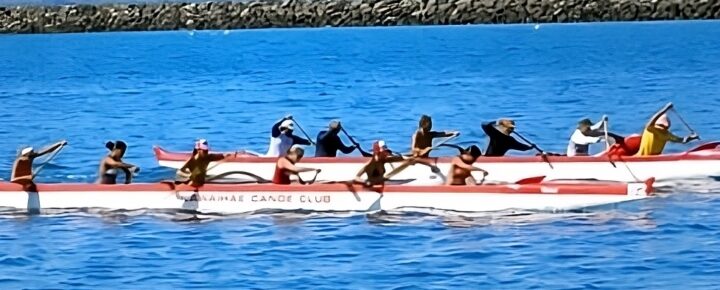
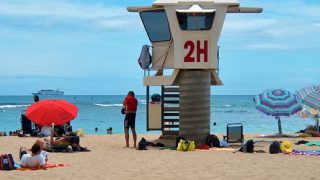

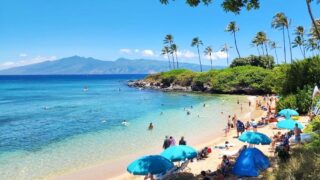
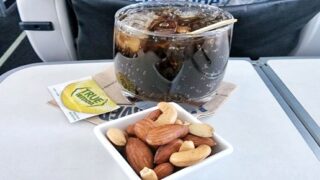
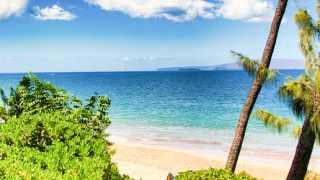
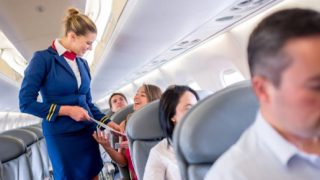
Going to Costco and seeing pallets of plastic water bottles always makes me cringe. It’s an environmental ticking time bomb. Most of those bottles end up in Hawaii’s landfill, and even the ones that are HI5 recyclable rarely make it to recycling. Plastic water bottles are for the lazy and careless. What good are the phrases Aloha ‘āina and Mālama i ka ʻāina if we donʻt move away from plastic?
Princess Kaiulani has had a water refill station for years.
And, they provide a collapsible water bottle.
Just have to remember to take it with you!
Quit selling the plastic, set up water stations to fill whatever refillable bottle the consumer chooses to use. Forcing me to use someone else’s bottle with questionable economics and environmental impacts (electricity, bottle caps) is just plain stupid.
Plastic bottles leave a caustic substance in foods. So dose Aluminum. However, If it is dumped into the ocean, It will sink and not float into that pile of garbage out in the middle of the Pacific Ocean.
Hotels might disperse these bottles but at what cost? Same cost as what a Hydro Flask? Only filled and used in machines in Hawaii? Need water please find a hotel that has a machine that refills the bottles. You would think if this is a replacement for plastic bottles they would have installed these machines in ABC stores,airport,fast food restaurants and such. Oh how does that good aluminum can work out in the outside hot temperatures too. Not refillable after leaving the islands and on it’s way to some other states landfill when all is said and done.
Am I mistaken, I thought aluminum was bad for the the brain?
I read that China has invented a new type of plastic that dissolves in the ocean or in the ground after a period of time. Is this just a hoax or is the US behind the 8-ball on this?
I am sure this will not be free to guests. Sounds like a money making gimmick, not a sustainable choice. Eco conscious tourist will carry their own metal or glass bottle to fill with water from the tap. Cheap and sustainable and eco friendly! What a concept!
You don’t think people are going to keep the aluminum containers around? The real solution is to put a big price tag on the containers so they can be returned.
This won’t work. Most people carry their own SS bottles now, they need machines that refill them at all the airports and hotels. His solution is a nice attempt to get away from plastics but it won’t work in the long run. We, the consumers have already figured it out by getting our own refillable containers. Mahalo
Does Hawaii have a bottle deposit – and is there any tangible benefit to the customer for returning the bottle instead of just pitching it?
Yes, there is a 7-cent deposit collected by the cashier. Other, larger containers require a bigger deposit.